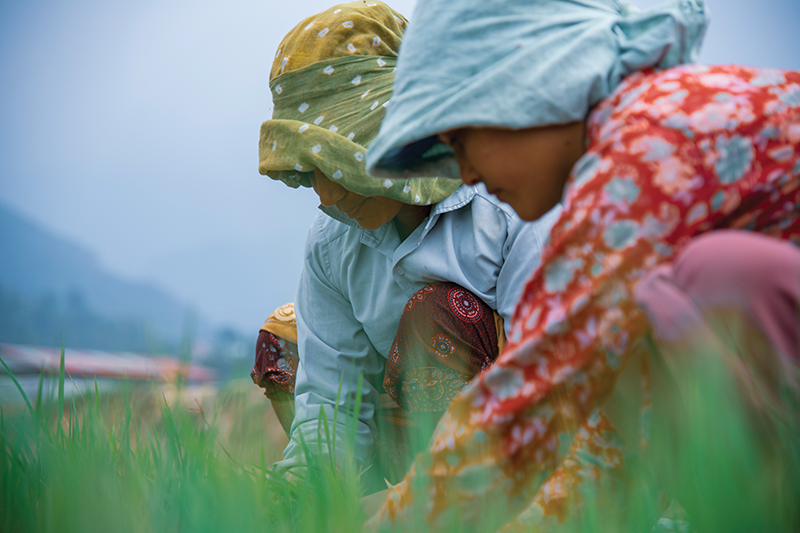The Festival of Ropai
The date Asar 15 only reminds every one of us about the Daahi-chiura day or to be more specific Rastriya Dhan Dibas (National Paddy Day). Nepal has a unique culture and one of them is this day when we Nepalese celebrate agriculture.

Nepal and Nepalese hide a lot of traditional surprises which are quite common for us but unique for anyone outside the country. The Monsoon is not always about rainy days and muddy roads for us but about Plantation and agriculture. 60% of the country’s population is directly or indirectly involved in agriculture and we depend on it. So, Monsoon brings those busy days to everyone and loads of work. The farmers are prepared for the work and excited for the fun that comes with it.
“Mana ropera muri falauni” is a quite common saying during Asar which means sow a little but reap in abundance. The day of plantation isn’t fixed and depends actually on the timely rainfall. However, the 15th of asar is the peak of the plantation and is celebrated nationwide. Considered as one of the religious festivals of Nepal, this day is celebrated by everyone regardless of what occupation they are involved in. Ropai jatra is now officially declared as National Paddy Day by the government itself as the encouragement to the hardworking farmers.
The day is celebrated in different ways in different parts of the country. People involved in agriculture celebrate it by playing in the muddy field, working together, and laughing out the hard work. They also dance in groups and sing folk songs. The main food for this day is Dahi chiura (yogurt with a type of beaten rice) as the day itself is also called Dahi chiura din casually. For people involved in other occupations, they celebrate it by eating the signature dish. As for farmers, after a difficult and tiring day of plantation is difficult, they gather up with the community and there is strength in unity, so together they celebrate the whole time growing food for the country.
Every Nepali has once in a while experienced the Ropai festival or at least seen it. The scene of women sowing seeds, kids playing on the slippery mud, oxen plowing fields, men digging the field plays. It depends on you if you just like to work all along or enjoy, dance and sing to make it better. Nature is your song and the field your dance floor. Personally, I think it creates a sense of bond as everyone works together and even for each other and is also an opportunity to create memories.
Many tourists watch this festival and are pretty interested in it. They click pictures take videos and sometimes even participate in it. The kind of unique culture fascinates them too. But keeping everything aside Asar or the celebration of agriculture is just paying homage to god for granting us this favor. It is all about working, celebrating, enjoying, and serving the people around. Monsoon isn’t a season, it’s a great gift of god for an agricultural country like ours.


